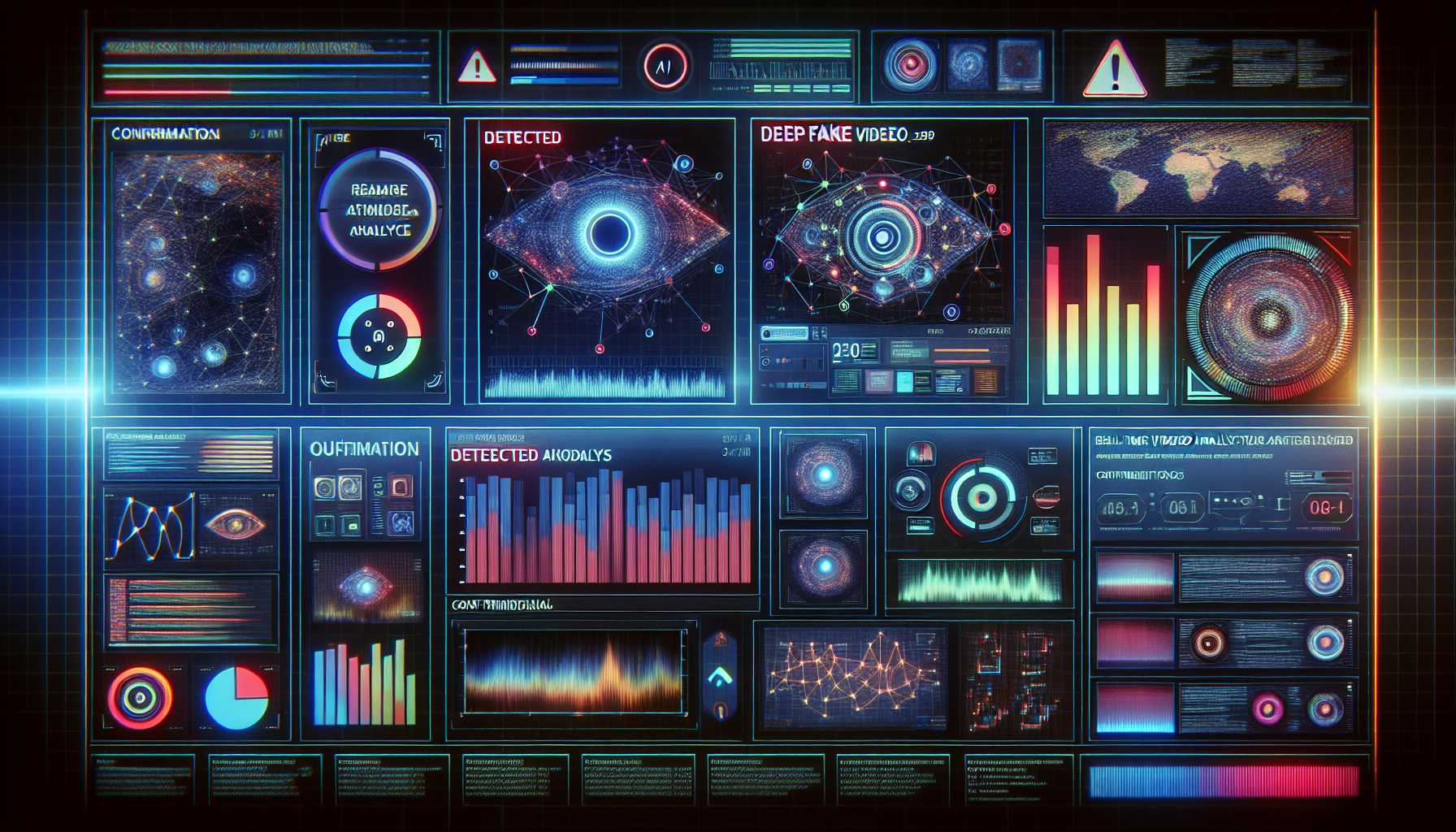The Sky’s Not the Limit: Albedo’s Ambitious Vision for Earth Imagery
 Imagine being able to see the weave in a patio chair from space. A startup named Albedo is on a mission to thread the needle in satellite imagery, bringing military-grade sharpness to commercial customers. This is the world of 10-centimeter resolution optical images – where each pixel translates to a patch of Earth 10 by 10 centimeters in size. Your backyard projects will never truly be private again! Here’s the scoop: Trump inadvertently tipped off the industry back in 2019 when he tweeted a now-declassified image of an Iranian launchpad, inadvertently letting the cat out of the bag about the U.S. military’s capabilities. A couple of brainiacs from Lockheed Martin, Topher Haddad and AyJay Lasater, and Winston Try—an engineer—could not shake off the fascination with this revelation. Fast forward, and they’ve hatched Albedo. This isn’t your run-in-the-mill satellite club; Albedo’s unique selling point is their satellite bus technology adapted for Very Low Earth Orbit (VLEO), a less congested and radiation-friendly altitude for space techies, but with more atmospheric drag to contend with. Their game plan? Heavier satellites coupled with snazzy electric propulsion to counteract that pesky drag. Aside from the dashing hardware, the software part is also neat, with a focus on robotics and control to ensure that the photos are as unblurred as Instagram influencers’ selfies. And investors are biting, pumping in a cool $97 million. It’s not just the tech world that’s excited – from agricultural prospects to national security implications, the applications are far reaching and groundbreaking. Set your calendars for 2025; Albedo’s first satellite is scheduled to take flight!
Imagine being able to see the weave in a patio chair from space. A startup named Albedo is on a mission to thread the needle in satellite imagery, bringing military-grade sharpness to commercial customers. This is the world of 10-centimeter resolution optical images – where each pixel translates to a patch of Earth 10 by 10 centimeters in size. Your backyard projects will never truly be private again! Here’s the scoop: Trump inadvertently tipped off the industry back in 2019 when he tweeted a now-declassified image of an Iranian launchpad, inadvertently letting the cat out of the bag about the U.S. military’s capabilities. A couple of brainiacs from Lockheed Martin, Topher Haddad and AyJay Lasater, and Winston Try—an engineer—could not shake off the fascination with this revelation. Fast forward, and they’ve hatched Albedo. This isn’t your run-in-the-mill satellite club; Albedo’s unique selling point is their satellite bus technology adapted for Very Low Earth Orbit (VLEO), a less congested and radiation-friendly altitude for space techies, but with more atmospheric drag to contend with. Their game plan? Heavier satellites coupled with snazzy electric propulsion to counteract that pesky drag. Aside from the dashing hardware, the software part is also neat, with a focus on robotics and control to ensure that the photos are as unblurred as Instagram influencers’ selfies. And investors are biting, pumping in a cool $97 million. It’s not just the tech world that’s excited – from agricultural prospects to national security implications, the applications are far reaching and groundbreaking. Set your calendars for 2025; Albedo’s first satellite is scheduled to take flight!
Plugging the Leaks in Software Security with Coana’s Insight
 Moving from space to cyberspace, let’s talk about Coana. This Danish cybersecurity newcomer, backed by the VC goliath Sequoia, is building a next-gen Software Composition Analysis (SCA) tool. Coana isn’t about barking up every tree – it wants to lead you straight to the rotten apples, identifying genuine vulnerabilities among the sea of benign code. With most software incorporating open source components that are often outdated and shakily maintained, the need for precise vulnerability detection is more vital than ever. Coana’s edge lies in creating a ‘call graph’ of applications. Imagine your software as a family tree, with each function branching out – Coana’s tech maps out these branches, helping to highlight the real security concerns. Filtering out the noise in alerts means businesses can zero in on critical threats. They’ve bootstrapped their way with $1.6 million in pre-seed funding and are eyeing up Java and Python for their next act. If they can deliver on precision detection, Coana could be a gamechanger in a world where software vulnerability can mean lights out.
Moving from space to cyberspace, let’s talk about Coana. This Danish cybersecurity newcomer, backed by the VC goliath Sequoia, is building a next-gen Software Composition Analysis (SCA) tool. Coana isn’t about barking up every tree – it wants to lead you straight to the rotten apples, identifying genuine vulnerabilities among the sea of benign code. With most software incorporating open source components that are often outdated and shakily maintained, the need for precise vulnerability detection is more vital than ever. Coana’s edge lies in creating a ‘call graph’ of applications. Imagine your software as a family tree, with each function branching out – Coana’s tech maps out these branches, helping to highlight the real security concerns. Filtering out the noise in alerts means businesses can zero in on critical threats. They’ve bootstrapped their way with $1.6 million in pre-seed funding and are eyeing up Java and Python for their next act. If they can deliver on precision detection, Coana could be a gamechanger in a world where software vulnerability can mean lights out.
Clearing the FOG: Election Integrity and the Role of AI
 Fast forward to election woes and AI’s role in the democratic process. OpenAI, the titan in the room, faced a bit of controversy with its decision to pull the plug on Dean.Bot, a ChatGPT-powered critter campaigning for Minnesota Rep. Dean Phillips. They claimed the user flouted their rules which specifically prohibit campaign shenanigans. OpenAI’s made its position crystal clear: they’re all about election integrity, sounding the bell on spreading misinformation via their tech. Across the pond at Meta, the gods of the oversight board are scrutinizing their approach to automated moderation after a blunder involving the handling of a Holocaust denial post. Users cried foul, and upon review, the board deemed the post hate speech and insisted Meta needed a heftier wrench to tighten the nuts and bolts of its content moderation engine. Meanwhile, Microsoft was playing digital whack-a-mole with a bunch of Russian-sponsored hackers called Midnight Blizzard. They gained a toehold into Microsoft’s systems, but the tech behemoth was quick to shut the door on any serious data breach relating to their customers.
Fast forward to election woes and AI’s role in the democratic process. OpenAI, the titan in the room, faced a bit of controversy with its decision to pull the plug on Dean.Bot, a ChatGPT-powered critter campaigning for Minnesota Rep. Dean Phillips. They claimed the user flouted their rules which specifically prohibit campaign shenanigans. OpenAI’s made its position crystal clear: they’re all about election integrity, sounding the bell on spreading misinformation via their tech. Across the pond at Meta, the gods of the oversight board are scrutinizing their approach to automated moderation after a blunder involving the handling of a Holocaust denial post. Users cried foul, and upon review, the board deemed the post hate speech and insisted Meta needed a heftier wrench to tighten the nuts and bolts of its content moderation engine. Meanwhile, Microsoft was playing digital whack-a-mole with a bunch of Russian-sponsored hackers called Midnight Blizzard. They gained a toehold into Microsoft’s systems, but the tech behemoth was quick to shut the door on any serious data breach relating to their customers.
Tackling Technological Titans: Global Crackdowns and Antitrust Woes
 As we’re assessing the digital cosmos, our tech overlords aren’t having an easy ride on Earth. Apple had to cough up $13.65 million for allegedly arm-wrestling app developers over payment methods in Russia. It’s a familiar story, with big tech companies frequently getting entangled in the web of antitrust claims. From the frozen landscapes of Russia, all the way to the hallowed halls of Silicon Valley, regulatory hawks are circling, sharpening their talons for the next round of antitrust scrutiny.
As we’re assessing the digital cosmos, our tech overlords aren’t having an easy ride on Earth. Apple had to cough up $13.65 million for allegedly arm-wrestling app developers over payment methods in Russia. It’s a familiar story, with big tech companies frequently getting entangled in the web of antitrust claims. From the frozen landscapes of Russia, all the way to the hallowed halls of Silicon Valley, regulatory hawks are circling, sharpening their talons for the next round of antitrust scrutiny.
Search Engines Under the Microscope: Quality or Quantity?
 Switching gears, let’s delve into the heart of our everyday digital quest for knowledge – the search engine. Recent studies suggest that the likes of Google and its counterparts might be prioritizing clickbait over substance, affecting the quality of information we receive day in, day out. As AI becomes more integrated into content creation, finding the line between fact and fabricated fiction becomes all the more challenging. It’s a battle of algorithms and ethics, and keeping this digital balance in check is now the crusade of the century. It’s clear that the tech industry is juggling opportunities and obstacles, and this seemingly infinite loop of innovation and regulation defines the current tech era. From cosmic cameras, to code scanners, to conflict zones, the ones behind keyboards hold immense power in shaping the planet’s trajectory. Stay tuned, keep your eyes peeled, and your critical thinking sharp.
Switching gears, let’s delve into the heart of our everyday digital quest for knowledge – the search engine. Recent studies suggest that the likes of Google and its counterparts might be prioritizing clickbait over substance, affecting the quality of information we receive day in, day out. As AI becomes more integrated into content creation, finding the line between fact and fabricated fiction becomes all the more challenging. It’s a battle of algorithms and ethics, and keeping this digital balance in check is now the crusade of the century. It’s clear that the tech industry is juggling opportunities and obstacles, and this seemingly infinite loop of innovation and regulation defines the current tech era. From cosmic cameras, to code scanners, to conflict zones, the ones behind keyboards hold immense power in shaping the planet’s trajectory. Stay tuned, keep your eyes peeled, and your critical thinking sharp.





